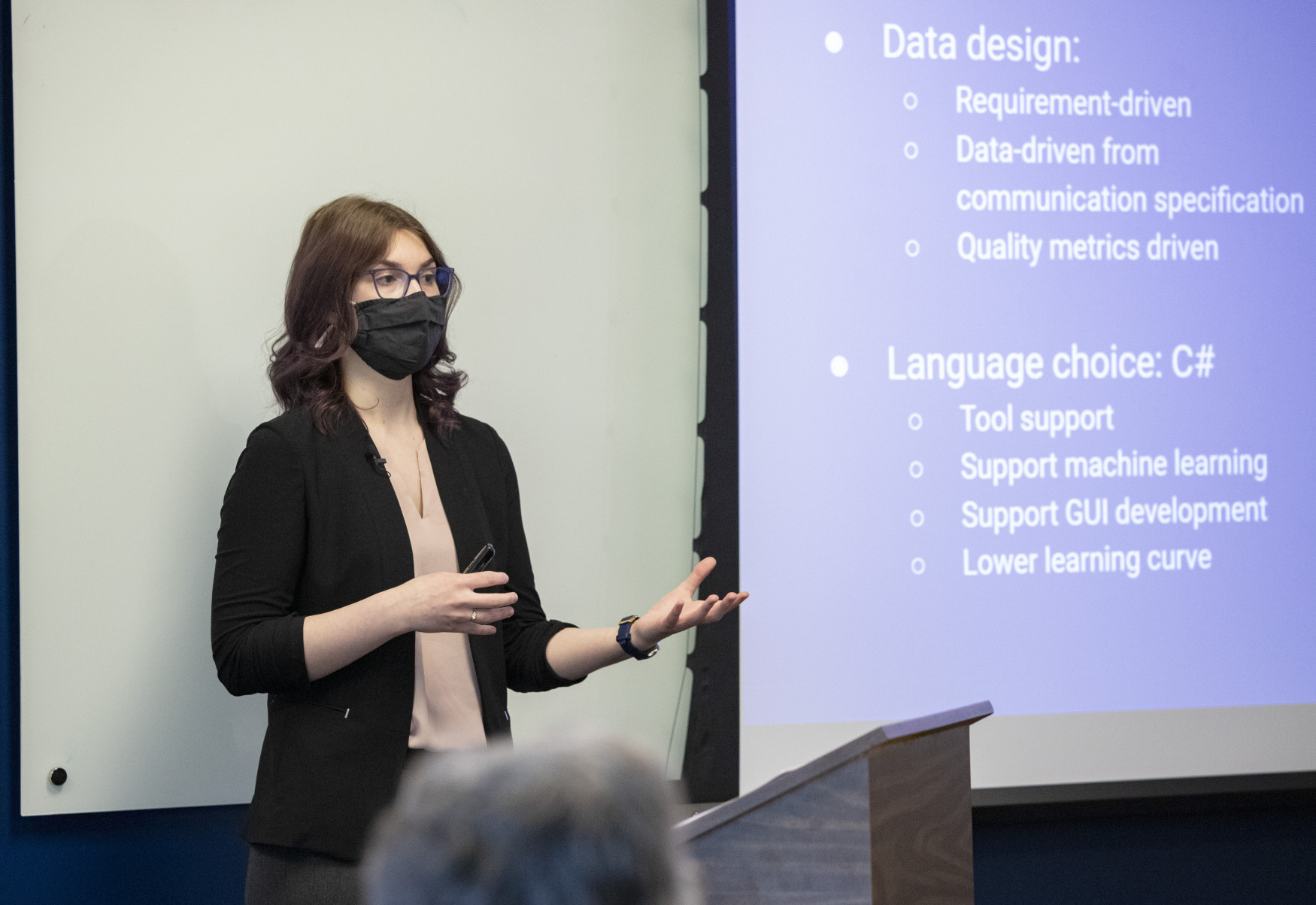The first five students in the Software Engineering program graduate this spring — a milestone not just for them, but for the university itself, and especially for the Faculty of Science.
TRU’s first graduates in the Software Engineering program are small in number, but huge in representing the university’s efforts to offer its own engineering programs.
For more than 30 years, students have come to TRU to take a foundational first year in engineering, then transfer to another institution. That changed in 2018 when the university established its own Software Engineering program, and now other engineering options are in the works.
This spring, everyone involved in the program is celebrating the graduation of the program’s first fantastic five: Lorelei Guidos, Kaleab Befikadu, James Hiroki Howe, Cem Doganay and Ahmed Haroon. They benefitted from small class sizes and the resulting personal attention of faculty members.
“The professors know you by name. You could go to their office hours and get the help you needed,” says Guidos, the only woman in the cohort and this year’s Faculty of Science valedictorian.
Co-op leads to mentorship
She began her university education taking business classes, but wanted something more technical, so she switched into engineering. She already has a job lined up with Raptor Integration, the company she did her co-op placement with. The fact that it’s in her home town of Salmon Arm is a bonus.

Lorelei Guidos presents the class capstone project to faculty and other spectators.
“They’re an industrial automation company that specializes in sawmill automation. Over my five terms there, I started out doing very basic tasks relating to the different programs that we had and things like that,” she says.
“I ended up mentoring new co-op students that were coming in. I became a technical lead on one of our research and development projects, and I was really able to grow as an employee and also as a student.”
Catherine Tatarniuk, assistant teaching professor in engineering, reinforced Guidos’s comments about the small class size.
“That is something very special about this program,” she says.
“It’s a huge course load, but we support students and they can divide the program over more years. I’m proud of these students, I know how hard they worked.”
Faheem Ahmed, associate dean of science, is proud to see students graduating into careers that are in demand.
A career that’s in demand
“This provides an opportunity for an affordable and accessible engineering program within this region. And this provides a lot of opportunities for this region to grow in terms of like creating knowledge centres within smaller communities and having more interaction with community-based research,” he says.
“There is a continuous demand for automation. There’s a continuous demand for developing software that can make life easy and more affordable. This demand is continually increasing. And I have never seen a student with finished a degree in software engineering who is unemployed.”
Dean of Science Greg Anderson says as more technology-related companies move to Kamloops and the region, the demand for software engineers keeps growing.
“The university is creating a suite of engineering programs which are technology based and support the local and regional economies in the Interior of B.C. by providing an affordable and accessible option for students,” says Anderson.
“We still have a lot of room that we can grow into. The program was designed with a lot of space that we can grow into. . . . In the next couple of years, we’ll probably graduate about 20 students a year.”

